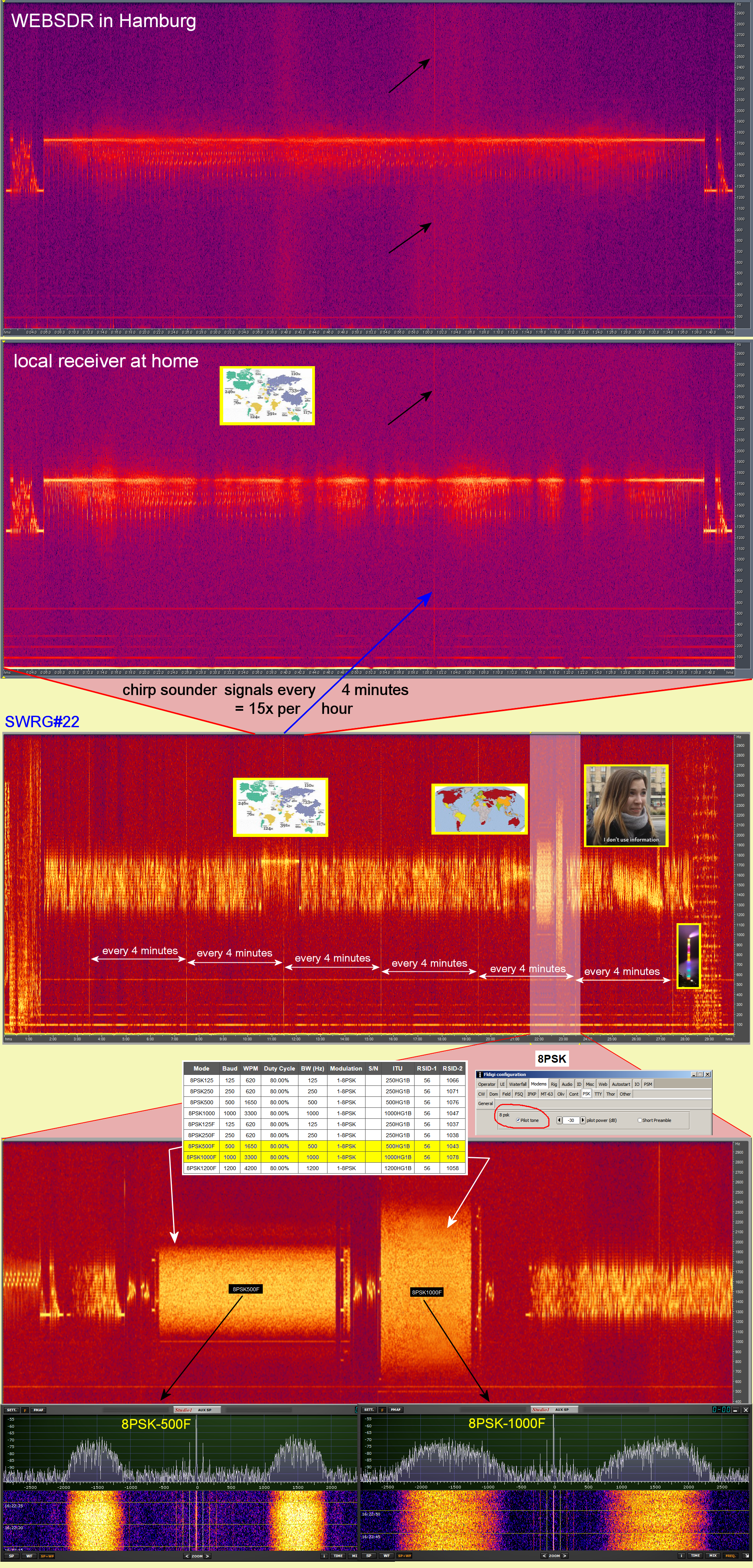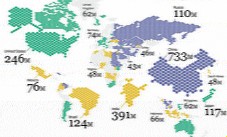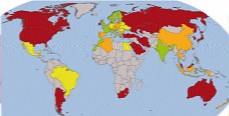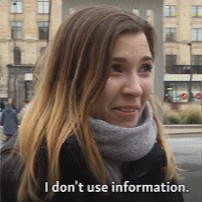|
RSID:
<<2017-11-18T16:21Z 8PSK-500F
@ 9400000+1500>>
This is Shortwave Radiogram in
8PSK-500F
Please send reception reports to
radiogram@verizon.net
From Deutsche Welle:
15 November 2017
Russia lawmakers vote in favor of labeling media 'foreign agents'
The Russian Duma has backed an amendment allowing media outlets
to be designated as "foreign agents" if they receive funding from
outside Russia. The move comes after Washington gave the same
label to RT and Sputnik.
Russian deputies unanimously voted in support of a controversial
foreign media amendment on Wednesday. The bill would give Russian
authorities the ability to designate foreign media outlets,
presumably including Voice of America, Radio Free Europe and
Deutsche Welle, as "foreign agents" and demand to see their
sources of funding.
No media outlets have been explicitly named in the document. The
label would need to be approved on a case-by-case basis by the
Russian Justice Ministry.
Russian officials described the measure as a tit-for-tat response
to last week's move from Washington. Previously, the US Justice
Department ordered Russia's foreign broadcaster RT, formerly
Russia Today, and the Sputnik news agency to register as agents
of a foreign government. Many US politicians accused the two
Russian outlets of meddling in the 2016 US presidential election.
Lawmaker to DW: 'I hope there won't be a conflict'
Senior Russian lawmaker Andrei Isayev said he hoped German media
in general, including Deutsche Welle, would not be affected by
the new regulations.
Isayev, who serves as deputy head of the United Russia party's
faction in the Duma, told DW on Wednesday: "Regarding Deutsche
Welle, I hope that there would be no measures taken regarding its
registration as a 'foreign agent. In this case the decision will
be made by government agencies. They will decide who will be
defined as a foreign agent.'"
When asked by DW whether German media could be affected more
generally, Isayev responded: "I hope that there won't be a
conflict between our countries. And so it won't be necessary to
take measures concerning German media outlets."
Germany decries possible press restrictions
Berlin sharply criticized the move, saying it would be
"completely unacceptable" for German and European media to suffer
restrictions over the dispute between the US and Russia.
The new legislation prompted "concern and consternation" in
Germany, according to Angela Merkel's spokesman Steffen Seibert.
He also referred to DW, saying that Germany's international
broadcaster stands for "freedom of press and opinion around the
world, and also stands for objective reporting."
Berlin assumes that "Deutsche Welle will be able to continue its
journalistic activity in Russia."
Bill may be used 'once'
The Russian bill would allow the government to mirror the US
demands, said the chairman of the Duma committee for information,
Leonid Levin. Under the broadly phrased legislation, Moscow will
be able to determine which outlets should be labeled as foreign
agents.
"I would like to hope that it will only be used once and there
will be no need for more retaliatory action," Levin said.
It was not immediately clear which steps would be taken towards
foreign media outlets in Russia. The bill is based on the 2012
law that forced NGOs to adopt a "foreign agent" label if they
receive funding from abroad. Since then, they are requested to
feature the label on their paperwork, statements and other
material. They are also subject to suprise raids and intensive
checks, and they must report where they get their money from and
how they spend it.
However, the Duma's deputy chairman, Pyotr Tolstoy, said that the
potential law would not apply to Russian media outlets that
receive partial funding from outside the country's borders.
Putin's approval required
With all 414 lawmakers present on Wednesday voting in favor of
the amendment, the bill was officially endorsed by the 450-seat
parliament. Before going into law, however, it also needs to be
endorsed by the Russian Federation Council and approved by
Russian President Vladimir Putin.
On Wednesday, Putin's spokesman Dmitry Peskov said it was
premature to discuss the perceived "harshness" of the law.
"We still have not seen the law in practice, so it would be
utterly incorrect to draw conclusions about it being more or less
harsh."
Peskov also sidestepped a reporter's question about Putin
possibly demanding changes in the wording of the amendment.
"I can't tell you that, let's wait for the moment when it is
presented for the president to sign," he said.
Previously, Putin commented that the proposed law "might be a
little too harsh."
dj/rc (AFP, Interfax, AP, Reuters)
http://www.dw.com/en/russia-lawmakers-vote-in-favor-of-labeling-media-foreign-agents/a-41388377
See also:
https://www.rferl.org/a/russia-amnesty-foreign-media-bill-repressive/28854885.html
https://www.rferl.org/a/russia-broadcast-law-warnings-rfe-rl/28856030.html
https://www.rferl.org/a/russia-amnesty-foreign-media-bill-repressive/28854885.html
https://www.rferl.org/a/28853274.html
https://www.voanews.com/a/russian-lawmakers-approve-bill-targeting-foreign-media/4115849.html
https://themoscowtimes.com/articles/russia-new-law-against-foreign-media-wont-even-work-59585
Shortwave Radiogram now changes to 8PSK-1000F |
RSID:
<<2017-11-18T16:22Z 8PSK-1000F
@ 9400000+1500>>
This is Shortwave Radiogram in
8PSK-1000F
Please send reception reports to
radiogram@verizon.net
From Deutsche Welle:
15 November 2017
Russia lawmakers vote in favor of labeling media 'foreign agents'
The Russian Duma has backed an amendment allowing media outlets
to be designated as "foreign agents" if they receive funding from
outside Russia. The move comes after Washington gave the same
label to RT and Sputnik.
Russian deputies unanimously voted in support of a controversial
foreign media amendment on Wednesday. The bill would give Russian
authorities the ability to designate foreign media outlets,
presumably including Voice of America, Radio Free Europe and
Deutsche Welle, as "foreign agents" and demand to see their
sources of funding.
No media outlets have been explicitly named in the document. The
label would need to be approved on a case-by-case basis by the
Russian Justice Ministry.
Russian officials described the measure as a tit-for-tat response
to last week's move from Washington. Previously, the US Justice
Department ordered Russia's foreign broadcaster RT, formerly
Russia Today, and the Sputnik news agency to register as agents
of a foreign government. Many US politicians accused the two
Russian outlets of meddling in the 2016 US presidential election.
Lawmaker to DW: 'I hope there won't be a conflict'
Senior Russian lawmaker Andrei Isayev said he hoped German media
in general, including Deutsche Welle, would not be affected by
the new regulations.
Isayev, who serves as deputy head of the United Russia party's
faction in the Duma, told DW on Wednesday: "Regarding Deutsche
Welle, I hope that there would be no measures taken regarding its
registration as a 'foreign agent. In this case the decision will
be made by government agencies. They will decide who will be
defined as a foreign agent.'"
When asked by DW whether German media could be affected more
generally, Isayev responded: "I hope that there won't be a
conflict between our countries. And so it won't be necessary to
take measures concerning German media outlets."
Germany decries possible press restrictions
Berlin sharply criticized the move, saying it would be
"completely unacceptable" for German and European media to suffer
restrictions over the dispute between the US and Russia.
The new legislation prompted "concern and consternation" in
Germany, according to Angela Merkel's spokesman Steffen Seibert.
He also referred to DW, saying that Germany's international
broadcaster stands for "freedom of press and opinion around the
world, and also stands for objective reporting."
Berlin assumes that "Deutsche Welle will be able to continue its
journalistic activity in Russia."
Bill may be used 'once'
The Russian bill would allow the government to mirror the US
demands, said the chairman of the Duma committee for information,
Leonid Levin. Under the broadly phrased legislation, Moscow will
be able to determine which outlets should be labeled as foreign
agents.
"I would like to hope that it will only be used once and there
will be no need for more retaliatory action," Levin said.
It was not immediately clear which steps would be taken towards
foreign media outlets in Russia. The bill is based on the 2012
law that forced NGOs to adopt a "foreign agent" label if they
receive funding from abroad. Since then, they are requested to
feature the label on their paperwork, statements and other
material. They are also subject to suprise raids and intensive
checks, and they must report where they get their money from and
how they spend it.
However, the Duma's deputy chairman, Pyotr Tolstoy, said that the
potential law would not apply to Russian media outlets that
receive partial funding from outside the country's borders.
Putin's approval required
With all 414 lawmakers present on Wednesday voting in favor of
the amendment, the bill was officially endorsed by the 450-seat
parliament. Before going into law, however, it also needs to be
endorsed by the Russian Federation Council and approved by
Russian President Vladimir Putin.
On Wednesday, Putin's spokesman Dmitry Peskov said it was
premature to discuss the perceived "harshness" of the law.
"We still have not seen the law in practice, so it would be
utterly incorrect to draw conclusions about it being more or less
harsh."
Peskov also sidestepped a reporter's question about Putin
possibly demanding changes in the wording of the amendment.
"I can't tell you that, let's wait for the moment when it is
presented for the president to sign," he said.
Previously, Putin commented that the proposed law "might be a
little too harsh."
dj/rc (AFP, Interfax, AP, Reuters)
http://www.dw.com/en/russia-lawmakers-vote-in-favor-of-labeling-media-foreign-agents/a-41388377
See also:
https://www.rferl.org/a/russia-amnesty-foreign-media-bill-repressive/28854885.html
https://www.rferl.org/a/russia-broadcast-law-warnings-rfe-rl/28856030.html
https://www.rferl.org/a/russia-amnesty-foreign-media-bill-repressive/28854885.html
https://www.rferl.org/a/28853274.html
https://www.voanews.com/a/russian-lawmakers-approve-bill-targeting-foreign-media/4115849.html
https://themoscowtimes.com/articles/russia-new-law-against-foreign-media-wont-even-work-59585
Shortwave Radiogram returns to MFSK32 ...
|








